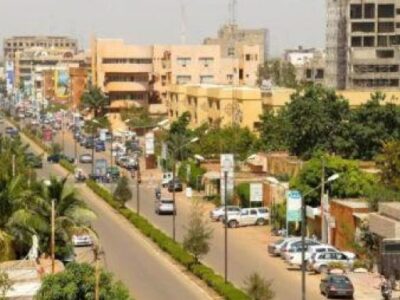Trade unions demanding above-inflation pay rises at Eskom have launched a scathing attack on the Treasury for being “reckless” in attaching stringent conditions to its multibillion rand debt relief for the ailing power utility.
Eskom, which relies on government bailouts to power the economy, has debt of more than R420bn. The government has said it will provide it with debt relief of R254bn over the next three years to enable Eskom to meet its full debt and interest payments.
However, one of the conditions National Treasury attached to the debt relief plan is that Eskom may not implement remuneration adjustments that “negatively affect its overall financial position and sustainability” over the three-year debt relief period.
These conditions seem to have raised the ire of the unions demanding pay hikes of up to 15% at the struggling power utility.
The National Union of Metalworkers of SA’s (Numsa) first deputy president, Mac Chavalala, said: “We think the Treasury is being insensitive to what we are going through as a country. We are currently at stage 6. If [they are] serious about helping Eskom get out of the rolling blackouts, you can’t have a situation where Treasury is treating the state-owned enterprises like an entity.”
In a joint media briefing by leaders of Numsa, the National Union of Mineworkers (NUM), and Solidarity, at Woodmead, north of Johannesburg, on Friday, Chavalala criticised the Treasury for “beginning to behave like the World Bank in terms of the conditions attached in assisting Eskom”.
“Treasury cannot, at this stage, begin to give conditions that are not sustainable and help us get out of load-shedding. We think Treasury’s conditions are a bit reckless, not well thought [out, and] will make the situation worse,” he said.
Numsa deputy general secretary Mbuso Ngubane said the Treasury’s conditions attached to the debt relief are “unfair” as workers had not received decent pay for years. “You can’t have Eskom without workers [so] you can’t budget for Eskom and leave workers out,” he said.
The Treasury did not respond immediately to a request for comment.
NUM and Numsa want a 15% pay rise, while Solidarity demands an increase of 3% above the average inflation rate. It surged to 7.1% in March, from 7% in February. Numsa is demanding a two-year wage deal, while NUM and Solidarity want a single-term agreement.
The three unions announced during the media briefing that they had jointly rejected the 3.75% wage offer tabled by Eskom’s management at the central bargaining forum on Thursday.
Eskom spokesperson Daphne Mokwena said its 3.75% offer was “reasonable” given the utility’s financial and operational position. In July 2022, the parties signed a 7% across-the-board wage deal, which added R1bn to Eskom’s salary bill, and ended a weeklong wildcat strike that deepened the electricity supply crisis.
Solidarity general secretary Gideon du Plessis said any offer below consumer price inflation “is something we cannot even consider taking back to our members”.
He criticised the Eskom negotiating team for treating the wage talks lightly, saying the Eskom team was “unprepared”, “destructive” and being generally sloppy during the first round of talks, which began on April 19.
The union leaders accused Eskom’s GM for people relations, Thulane Ngele, of making “sarcastic” comments during talks. The unions wanted him removed from the Eskom negotiating team.
“Ngele is toxic and his utterances are very provocative… He has no idea what meaningful engagement is, and he is rude and obnoxious in the manner that he communicates with labour in this forum,” said the unions.
Union leaders reiterated that they thought Ngele was “dangerous and not the right person to help us to reach an amicable agreement during these wage talks”.
The second round of talks resumes on May 8.











Comments